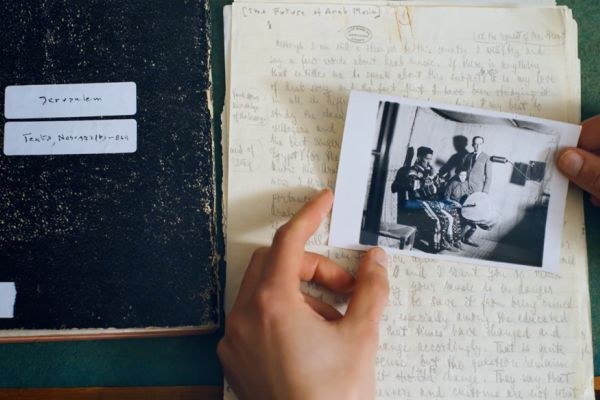Rebecca Hanna John // Transnational Memory Work as Resistance: Archival Critique in the Artistic Practices of Akram Zaatari, Jumana Manna, and Farah Saleh
Since the early 2000s, art historians, critics, and curators have been intrigued by the fact that many contemporary artists are working with archival material or archive-like modes of display. This dissertation starts from the observation that several contemporary artists not only critique the ways in which archives have been used as tools of governance but also use archives to trace transnational connections, trajectories, and entanglements. This specific artistic strategy of working with archives compels us to expand our notion of the archive and its connection to the national lens, given that archives have traditionally been national institutions with the goal of preserving national history and heritage. Instead of Hal Foster’s term “archival impulse” (Foster 2004), or the often-quoted Derridean “archive fever” (Derrida 1996), I use the term “archival critique” for the practices of those artists whose archival engagements have the questioning of absolute origins in the sense of essentialist constructions of identity, home, and nation at their core.
In focusing on Akram Zaatari, Jumana Manna, and Farah Saleh, this dissertation engages with Lebanon and Israel/Palestine as the geo-political and socio-historical contexts that inform their work with archives—contexts shaped by competing national narratives and an “ideology of separation” (Hochberg 2007). In close-readings of a selection of the artists’ films and performances developed between 2010 and 2021, I show how against the backdrop of historical and present conflicts, the artworks attempt to establish a sense of belonging that goes against nationalist ideologies by enabling encounters that transgress separations—and might thereby perform what Edward Said once called “more creative human activities than staying inside rigidly policed borders” (Said 1985).

[Caption: Jumana Manna, A Magical Substance Flows Into Me, 2016 (video still). Co-commissioned by the Sharjah Art Foundation and Chisenhale Gallery with Malmö Konsthall and the Biennale of Sydney. Courtesy the artist.]
